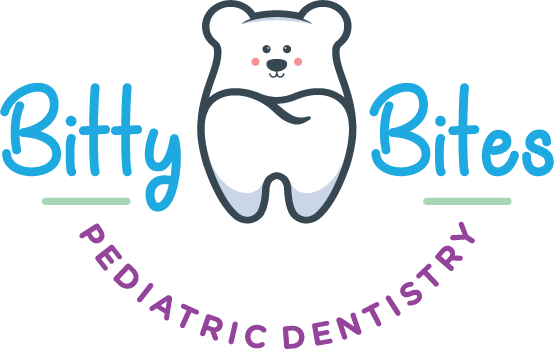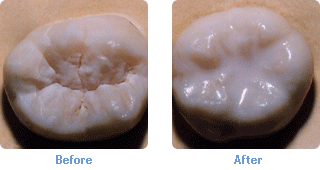The chewing surfaces of molars and premolars at the back of the mouth are rough, with grooves known as pits and fissures. Food particles and plaque become trapped in these depressions, allowing bacteria to flourish and attack the tooth enamel, which can result in tooth decay and cavities.
Dental sealants are thin, plastic resin coatings that bond to the chewing surfaces of the back teeth, essentially "sealing" them, and protecting them from bacteria exposure. While they're not a substitute to proper brushing and flossing, they can help prevent cavities forming, and can even stop the early stages of decay from progressing. Sealants have been shown to reduce the risk of tooth decay by nearly 80%. '
Early cavity prevention is vital because tooth decay in baby teeth can lead to tooth decay in permanent teeth. Tooth decay in adults can potentially result in a lifetime of oral health problems.

